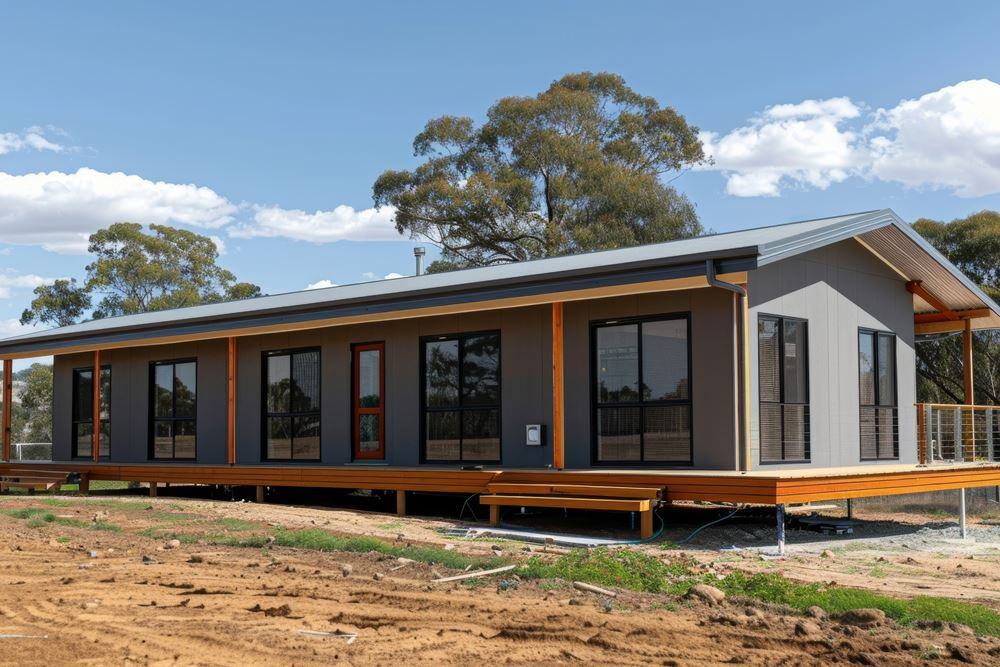Key Differences in Insurance: Modular vs. Manufactured Homes
October 9, 2024

Understanding the difference between modular home insurance and manufactured home insurance is important for any homeowner. Although the two types of homes may seem similar, their insurance needs are different, due to differences in construction methods, building codes, and foundation types. Always consult with expert insurance companies like Triad who specialize in modular and manufactured homes. This way you can ensure you have the right coverage for your specific needs.
Modular Home Insurance
Modular homes are often treated like traditional homes, because their structures are similar. Because of this, modular home insurance is very similar to standard homeowners insurance. The coverage you’ll get for your modular home usually includes:
- Dwelling Coverage: This covers the physical structure of your home in the event of a covered incident like fire, windstorms, or hail. Since a modular home is placed on a permanent foundation and follows local building codes, the insurance companies consider it less of a risk compared to other prefabricated homes.
- Personal Property Coverage: Your modular home insurance will also likely cover your belongings, protecting them from theft, fire, or other damages. This ensures that, in the event of a disaster, your insurer will pay to repair or replace your personal items like furniture, technology, and clothing.
Manufactured Home Insurance
Manufactured home insurance works a little differently. Since these homes are built entirely in a factory, placed on a metal frame, and often transported long distances, the type of insurance you’ll need is more specialized. Usually, manufactured home insurance includes:
- Dwelling Coverage: Like modular home insurance, manufactured home insurance covers the structure of your home. However, because manufactured homes are built according to the HUD's structure of housing and urban development standards, the coverage is different from standard home insurance. It accounts for the fact that manufactured homes may not always sit on a permanent foundation.
- Mobile Home Insurance: Since many manufactured homes are still referred to as mobile homes, some insurance policies might refer to this coverage as mobile home insurance. This type of insurance is specifically designed to cover homes built in a factory and transported to the site, often factoring in risks related to transportation, settling, and structural differences.
- Personal Property Coverage: Similar to modular homes, this type of insurance covers the items inside your manufactured home. However, because manufactured homes are sometimes considered higher-risk, personal property limits might vary based on the insurer's assessment.
The main difference in manufactured home insurance is that it accounts for the unique risks associated with the construction and placement of these homes. For example, because many manufactured homes are not placed on a permanent foundation, they're more susceptible to damage from weather-related events, which can impact how insurance companies assess risk.
What Type of Insurance Do You Need?
When finding the best coverage for your home, it’s important to know the specific type of home you own. Is it a modular home or a manufactured home? This will help determine what type of insurance you need and what’s covered under each policy.
Here are some guidelines to help you figure out your insurance options:
If You Have A Modular Home:
- If your home is built in sections and assembled on-site to local building codes, you’re probably living in a modular home. In this case, look for modular home insurance, which is similar to standard homeowners insurance. It will cover dwelling coverage, personal property coverage, and incidents like fire, wind, or theft.
If You Have A Manufactured Home:
- If your home is built entirely in a factory and follows HUD’s structure of housing and urban development standards, it falls under the category of manufactured homes. In this case, you’ll need manufactured home insurance, which might also be referred to as mobile home insurance. This type of coverage considers the risks for a home that isn’t placed on a permanent foundation.
